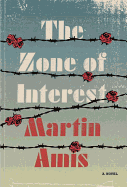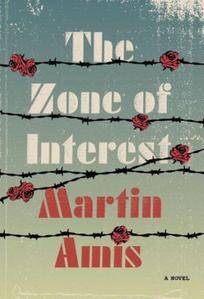

Golo Thomsen is a well-connected German officer and enthusiastic womanizer who falls for Hannah, newly arrived to join her alcoholic and increasingly dissipated husband, Paul Doll, the camp commandant. Golo's affections, while largely unrequited, serve as a through line for the larger story. Golo and Paul take turns narrating the events with a third man, a Polish prisoner named Szmul. Forced into the role of camp undertaker in exchange for better rations, Szmul clings to the blind hope of delaying his own fate as he bears witness to the horrors surrounding him. In different ways, each narrator reveals the texture of everyday life in Nazi Germany while satirizing the profligate excesses among those in its highest ranks.
Alarmed by news of an impending military collapse on the Eastern Front and convinced that Hannah and Golo are having an affair, Paul becomes more paranoid, more fervent and more misguided in his ambitions. He terrorizes Szmul and forces him into a scheme to exact revenge on Hannah, who cannot hide her horrified contempt. Golo plays the part of an impeccable Nazi officer and keeps his personal reactions publicly concealed. They are revealed only through the sardonic bite of his observations and in small, revealing descriptions of things like Hannah's "unpatriotic brown eyes." Szmul's sections lack the satirical edge found in the others and are the most interior and heartbreaking. He dreams of his wife and children. He accepts the ambiguity of the moral compromises he's made to stay alive. He hopes that, at the end, he will not have lost his urge to kill.
In his astounding afterword, Amis (Money; Yellow Dog) tackles the question of how to explain Nazi sympathizers--and whether explanation is even possible in the face of their incomprehensible hatred. He concludes that Hitler, sensing defeat by 1941, declared war on the U.S. in an act of suicidal aggression to ensure that Germany's inevitable defeat would be as complete and disastrous as possible. Hitler's hatred, then, turned inward as much as outward, at those he tried to exterminate. In the novel, Paul captures this dual nature of hatred particularly well. Golo and Hannah may not be able to find love with each other when that love emerged from such horror, but their affections are genuine, which is no small thing.
The Zone of Interest is mordant, crystalline and passionate, clearly conveying the irrationality of hate. It loses none of its art despite using art to drive an ethical argument. It is Amis at his finest. --Jeanette Zwart, freelance writer and reviewer
Shelf Talker: Amis revisits the setting of his Time's Arrow in this intricate and unforgettable look at life in a Nazi concentration camp, taking on questions of the nature of evil and the possibility of hope.

